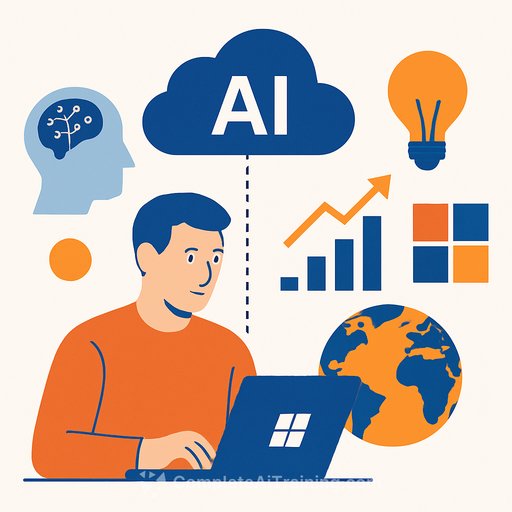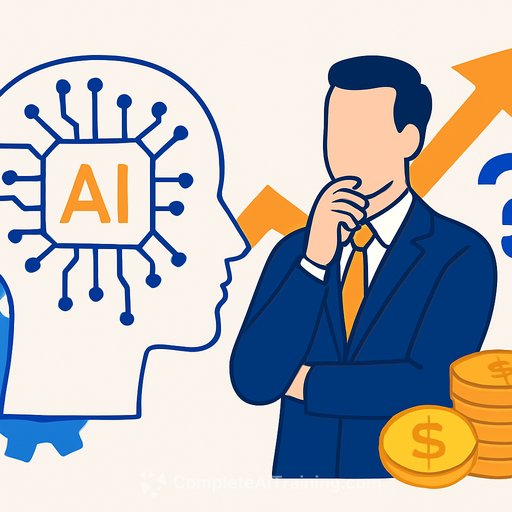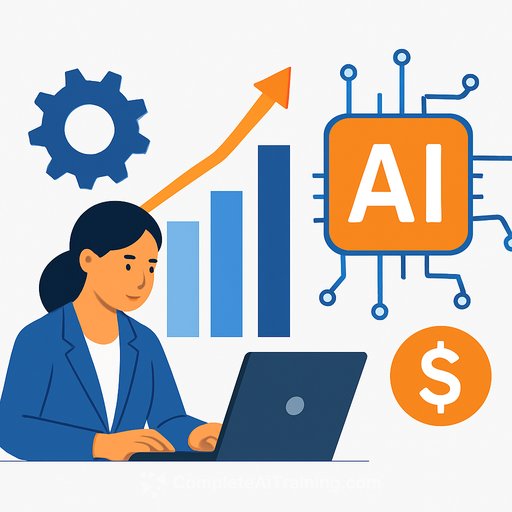Why Microsoft Is Leading the AI Race: Company Insights
Microsoft has positioned itself at the forefront of artificial intelligence (AI) through a combination of strategic partnerships, consistent innovation, and a firm commitment to ethical AI development. Its close collaboration with OpenAI, integration of AI-powered tools like Copilot in Microsoft 365, and scalable enterprise solutions via Azure AI demonstrate a broad and effective AI ecosystem. This approach is reshaping workflows for individuals and organizations while setting industry standards for responsible AI deployment.
Leveraging subsidiaries and partnerships with tech leaders and startups, Microsoft seamlessly bridges research and product development. Its focus on transparency, safety, and accessibility further cements its role as a trusted leader in AI. With a clear long-term vision backed by substantial investments, Microsoft is poised to influence global AI innovation for years to come.
Microsoft’s Journey in AI: From Research to Real-World Impact
Microsoft’s AI efforts began early, launching Microsoft Research in 1991 to invest in long-term technology advancement. Initial work in speech recognition, natural language processing, and computer vision laid the foundation for today’s AI capabilities. In 2014, the company introduced Xiaoice, an emotionally intelligent chatbot in China, enhancing user engagement through conversational AI.
Strategic acquisitions, like Semantic Machines in 2018, boosted Microsoft’s ability to create natural conversational experiences. These moves, combined with academic collaborations, transformed Microsoft’s AI research into widely used tools powering millions of users and thousands of organizations worldwide.
Key Innovations Driving Microsoft’s AI Leadership
Microsoft’s AI cloud services offer a broad portfolio including deep learning, machine learning, computer vision, and advanced language processing tools. Businesses globally leverage these capabilities to improve operations and decision making.
Microsoft Copilot Integration
Copilot, Microsoft’s AI assistant, is embedded across Microsoft 365 and GitHub. It enhances productivity by assisting with writing, coding, and various tasks, boosting efficiency for users at all levels.
Microsoft and OpenAI Partnership
Microsoft holds exclusive access to OpenAI’s models such as GPT-4, which form the backbone for many of its AI services, including Copilot and Azure AI offerings. This partnership fuels Microsoft’s AI advancements and market reach.
Enterprise Tools
Microsoft integrates AI across its enterprise platforms like Teams, Outlook, Dynamics 365, and LinkedIn, making AI accessible at scale for businesses of all sizes.
Research and Development
The company continues to invest heavily in areas such as computer vision, speech synthesis, and reinforcement learning, ensuring ongoing innovation and enhanced AI performance.
Strategic Relationships and Acquisitions Driving Microsoft’s AI Growth
Microsoft’s AI momentum is supported by strategic partnerships and acquisitions. Its multi-billion-dollar investment in OpenAI grants exclusive access to advanced AI models, which are central to many Microsoft products and services. Analysts estimate that OpenAI’s technology could contribute significantly to Microsoft’s revenue growth.
Microsoft’s recruitment of top talent, including leaders from DeepMind and Inflection AI, strengthens its consumer AI capabilities. At its 2025 Build conference, Microsoft announced collaborations with Nvidia, xAI, Anthropic, and Mistral, highlighting its strategy to support multiple AI models and expand its developer and enterprise platforms.
These partnerships and acquisitions enable Microsoft to stay ahead by combining startup innovation, elite talent, and major industry players.
Consequences of Microsoft’s AI Leadership for the Technology Sector
- AI Integration at Scale: Microsoft’s AI-first approach encourages widespread AI adoption. Its integration of AI into Microsoft 365 and Azure illustrates the benefits of improved efficiency, cost savings, and data-driven decision-making.
- Raising the Bar for Ethical AI: Microsoft’s focus on inclusion, transparency, and accountability is pushing the industry to develop safer and more responsible AI solutions.
- Collaborative Ecosystem Development: By partnering with startups, research institutions, and global organizations, Microsoft fosters an open AI ecosystem that promotes innovation, AI literacy, and job creation.
Conclusion
Microsoft’s leadership in AI stems from deliberate strategy, deep technological expertise, and ethical practices. Early investments in research, bold moves like backing OpenAI, and seamless integration of AI across products demonstrate clear foresight. Its AI tools deliver tangible results and are built with fairness and accessibility in mind.
The company’s ability to attract top talent and cultivate partnerships with advanced AI players further secures its position. Microsoft’s commitment to responsible AI fosters trust and accelerates adoption across industries.
As AI continues to transform business, Microsoft’s influence is set to grow. Its history and sustained focus ensure it remains a top player in AI innovation—a critical insight for executives and strategists tracking the future of technology.
FAQs
- What is Microsoft’s role in the AI chip space?
Microsoft is developing its own AI chips, such as Maia and Cobalt, to reduce reliance on third-party hardware and optimize performance for AI workloads. - How is Microsoft using AI to secure cybersecurity products?
AI is deployed to detect threats in real time within Microsoft’s cloud services, enhancing protection against cyberattacks and data breaches. - Does Microsoft provide AI tools to SMBs?
Yes, Microsoft offers affordable and user-friendly AI tools through Microsoft 365 and Azure, suitable for small and mid-sized businesses. - Is Microsoft involved in AI education or training?
Microsoft offers both free and paid AI training for students, developers, and professionals via platforms like Microsoft Learn and LinkedIn Learning. For additional AI training resources, visit Complete AI Training. - How does Microsoft build inclusive AI tools?
Microsoft follows strict guidelines to ensure fairness by testing models and minimizing bias, aiming to make AI tools accessible and inclusive for all users.
Your membership also unlocks:






